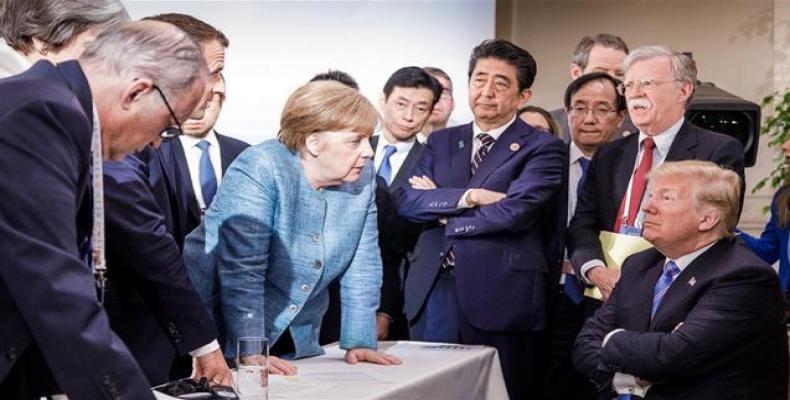Berlin, June 11 (RHC)-- German Foreign Minister Heiko Maas has slammed U.S. President Donald Trump for sending tweets about a recent meeting of G-7 group of industrialized nations, saying those statements are further destroying trust between the United States and traditional allies in the West.
"You can destroy an incredible amount of trust very quickly in a tweet. That makes it all the more important that Europe stands together and defends its interests even more offensively," Maas said in his own Twitter page on Sunday, clearly making a reference to Trump's decision to pull out of a joint communiqué of the G-7 summit in Canada.
The latest episode of the G-7 summit was one of toughest ever and adoption of a consensus statement without the U.S. involvement further tarnished the image of the organization which has traditionally boasted of its shared Western values and objectives under American leadership.
G-7 members are especially angry at Trump's decision in March to impose tariffs on imports of steel and aluminum. Those countries have vowed to reciprocate the move by imposing their own duties on American imports.
The rifts have also widened over Trump's withdrawal from key international pacts, like a nuclear deal with Iran and a landmark climate change agreement.
Canadian Prime Minister Justin Trudeau said at the end of the G-7 summit that his country would not be deterred by Trump's threats. He said that Canadians "will not be pushed around" over Trump's decision to invoke national security to justify U.S. tariffs.
Germany accuses Trump of destroying trust at G-7 summit


